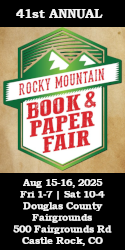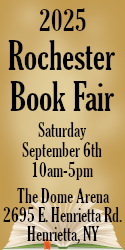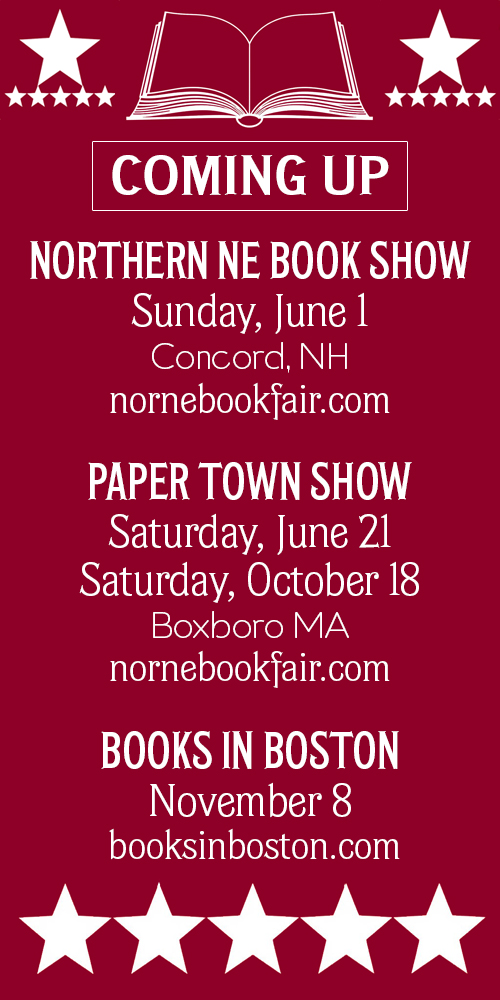And the Beat Goes On…
“To announce that there must be no criticism of the president, or that we are to stand by the president, right or wrong, is not only unpatriotic and servile, but is morally treasonable to the American public.” – Theodore Roosevelt
Anti-war literature is mainly retrospective and, more often than not, generally ignored – even the most compelling works are about as effective as a homily delivered to the choir while the congregation snores. Or to put it another way, as pointless as the spectacle of the lately converted preaching to those born to the faith, while everyone else watches Monday night football. It’s often written, or at least published, years after the passions of the moment have given way to feelings of collective guilt for innocent lives lost – while the cheerleaders of pre-emption continue their rounds on the cocktail party circuit. Nonetheless, three iconic novels that emerged from the First World War come to mind.
All Quiet on the Western Front (London, 1929) by Erich Maria Remarque [a phonetic inversion of Krämer, his original surname – in both Spanish and French “que” takes on the “k” sound] was first published in Germany as Im Westen Nichts Neues (Berlin, 1929) nearly 11 years after one of the most senseless wars in history. A demented fanatic assassinates an Austrian royal and nearly twelve million people pay with their lives or shattered body parts. Or to paraphrase a somewhat cynical George Bernard Shaw, “War breaks out when interest on capital falls below two percent and peace comes when it rises to five percent.”
Remarque’s book, unsparing in its graphic depiction of life in the trenches, was published a little more than ten years after the armistice – he certainly wouldn’t have had much luck finding a publisher while the conflict raged. Ostracism, incarceration or worse was the usual reward – and sometimes still is – for dampening enthusiasm for war (read “endangering morale”). After all, if common folk refused to fight and die, political leaders and their policy advisors, both inside and outside of government, might have to do the job themselves. And while patient diplomacy can be rather tedious and boring, war is a lot more exhilarating – especially for the people planning to start one. Copies of All Quiet on the Western Front can be found in many secondhand bookstores and all over the internet, from $3565.00 for a fine first edition in dust jacket to $5.50 for a good used copy of the first American edition.
Johnny Got His Gun (Philadelphia, 1939) by Dalton Trumbo is the story of a “basket case” and the likely source of the common metaphor used to describe someone in a helpless and hopeless situation. Published some twenty years after the First World War and at the beginning of the Second, whatever public influence it had at the time was overwhelmed by early rumblings of Germany’s pre-emptive military activity during the late ’30s. In the introduction to the 1959 edition Trumbo writes:
The book has a weird political history. Written in 1938 when pacifism was anathema to the American left and most of the center, it went to the printers in the spring of 1939 and was published on September third – ten days after the Nazi-Soviet pact, two days after the start of World War II. Shortly thereafter… serial rights were sold to the “The Daily Worker” of New York City. For months thereafter the book was (became) a rally point for the left. (and) …As the conflict deepened, and “Johnny” went out of print altogether, its unavailability became a civil liberties issue with the extreme American right…
The book is still available in the antiquarian book trade at prices ranging anywhere from $45.00 for a good copy in cloth to $2000.00 for a fine copy of the first edition in original dust jacket.
The novel wasn’t made into a movie until about 1971, largely because Trumbo had been put on the Hollywood black list emanating from the “red scare” of the late ’40s and early ’50s. I remember seeing “Johnny”, complete with dubbed-in Spanish sound track, while we were living in Granada (Spain) in the early ’70s. Our own regional library system no longer has it, but copies in VHS or DVD format might be available at better video stores.
A third must-read, in our basic trilogy of powerful anti-war novels is Humphrey Cobb’s Paths of Glory (New York, 1935), which, as far as I can tell, was the first and only book he ever wrote – a pity, since he wrote so well. Cobb had traveled to Montreal to enlist in a Canadian unit and his story, although fictional, was based on events he had intimate knowledge of. According to an historical episode, upon which the novel is based, the General Head Quarters of the French army mistakenly reported that a heavily fortified and nearly impregnable German position had been taken. Actually it had not, but the French field general, rather than correct the clerical error and possibly injure his reputation, ordered a battle-exhausted regiment to undertake what amounted to a suicide mission.
In the novel, a substantial part of the regiment is cut to pieces by German artillery and machine gun fire, and the general, enraged and humiliated by the failure of the attack, charges the survivors with cowardice and orders each company commander to select one man from his unit to be shot as an example to the others. And as if the basic narrative wasn’t shameful enough, Cobb’s depiction of character, motive and circumstance adds to the horror of the situation.
Copies of the book can be bought in the trade for as little as $5.00 for a used paperback up to $3000.00 for a fine presentation copy in dust jacket. But before going to the Internet, I’d suggest checking out an antiquarian or secondhand bookstore – assuming you’re fortunate enough to have one near where you live.
In 1957 director Stanley Kubrick’s film version, with a cast of actors that included Adolphe Menjou, Kirk Douglas, Chester Morris and others, portrays the depravity of segments of the French military officer class as it was at the time. Old movies are hard to buy, borrow or rent these days so if you haven’t seen Paths of Glory, pester your local video store or public library into finding a copy.
*
Although many of the classics of anti-war literature have been written, published, read, and made into movies long after the guns have been silenced (when it’s too late to affect the lunacy that gave rise to the events themselves) one of the benefits of modern technology and the Internet is that, in my opinion, news coverage has been changed for the better. Many cynics have commented that in our society freedom of the press is constitutionally guaranteed to everyone who happens to own one, and for years the people who ran the op-ed pages of our metropolitan daily newspapers also controlled public debate.
Web logs or “blogs” have become an increasingly important source for information and comment and over the past year or so the network and cable news people have sometimes had to play catch-up on stories that first appeared on someone’s web log. It’s a lot harder to sweep news under the rug nowadays – especially about matters relating to war and peace. Blogs, in many ways, have revived the anarchical spirit of the golden age of pamphleteering – underground reporting of events that the politically powerful would prefer the people not know about; informed comment; and, of course, plenty of passionate opinion and feedback. Somehow I think old Tom Paine would feel right at home.
George Paine, (a pseudonym, hence no relation to old Tom), runs a web site called “www.warblogging.com,” from which I lifted the quotation attributed to Theodore Roosevelt at the beginning of this piece. The site has elicited critical comment from a variety of sources including The Globe and Mail, which described it as “the very model of a communications revolution.” The Independent Weekly goes a bit further – “One of the most calm and intelligent anti-war voices on the Net, George Paine is at his best providing a ‘bird’s eye view of the perpetual, 1984-style war we’ve found ourselves in,’ with particular emphasis on analyzing the rapid ongoing erosion of U.S. civil liberties.” And even Time Magazine (April 7, 2003) admitted – “worth checking out.” There are also links to many related sites – a sort of cyber community of the present day anti-war movement.
*
And as we get on with our lives, while some of the policy advisors who successfully created an enlarged school for terrorists in Iraq are at this moment beating the drums for war with Iran, I would like to end with a prayer – the concluding bit of Mark Twain’s “War Prayer.” It voiced his passionate objection to the Philippine-American War of 1899-1902 and no publisher would touch it at the time. (Were they afraid of Roosevelt and therefore “unpatriotic and servile”?) It first saw the light of day in Harper’s Monthly for November of 1916 and was published again in 1923 as part of Albert Bigelow Paine’s anthology Europe and Elsewhere. Mark Twain.
“O Lord our Father, our young patriots, idols of our hearts, go forth to battle – be Thou near them! With them – in spirit – we also go forth from the sweet peace of our beloved firesides to smite the foe. O Lord our God, help us to tear their soldiers to bloody shreds with our shells; help us to cover their smiling fields with the pale forms of their patriot dead; help us to drown the thunder of the guns with the shrieks of their wounded, writhing in pain; help us to lay waste their humble homes with a hurricane of fire; help us to wring the hearts of their unoffending widows with unavailing grief; help us to turn them out roofless with little children to wander unfriended the wastes of their desolated land in rags and hunger and thirst, sports of the sun flames of summer and the icy winds of winter, broken in spirit, worn with travail, imploring Thee for the refuge of the grave and denied it – for our sakes who adore Thee, Lord, blast their hopes, blight their lives, protract their bitter pilgrimage, make heavy their steps, water their way with their tears, stain the white snow with the blood of their wounded feet! We ask it, in the spirit of love, of Him Who is the Source of Love, and Who is the ever-faithful refuge and friend of all that are sore beset and seek His aid with humble and contrite hearts. Amen.


























